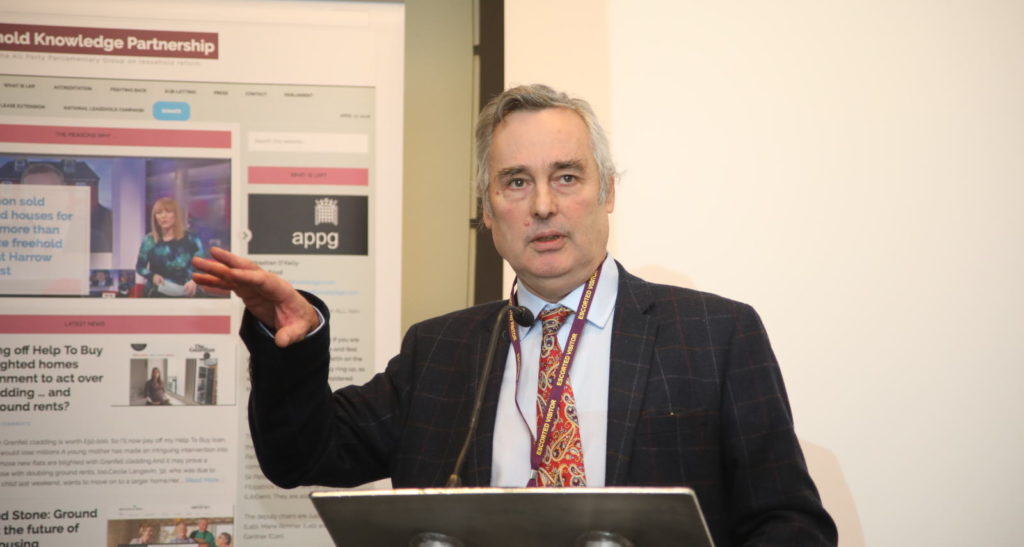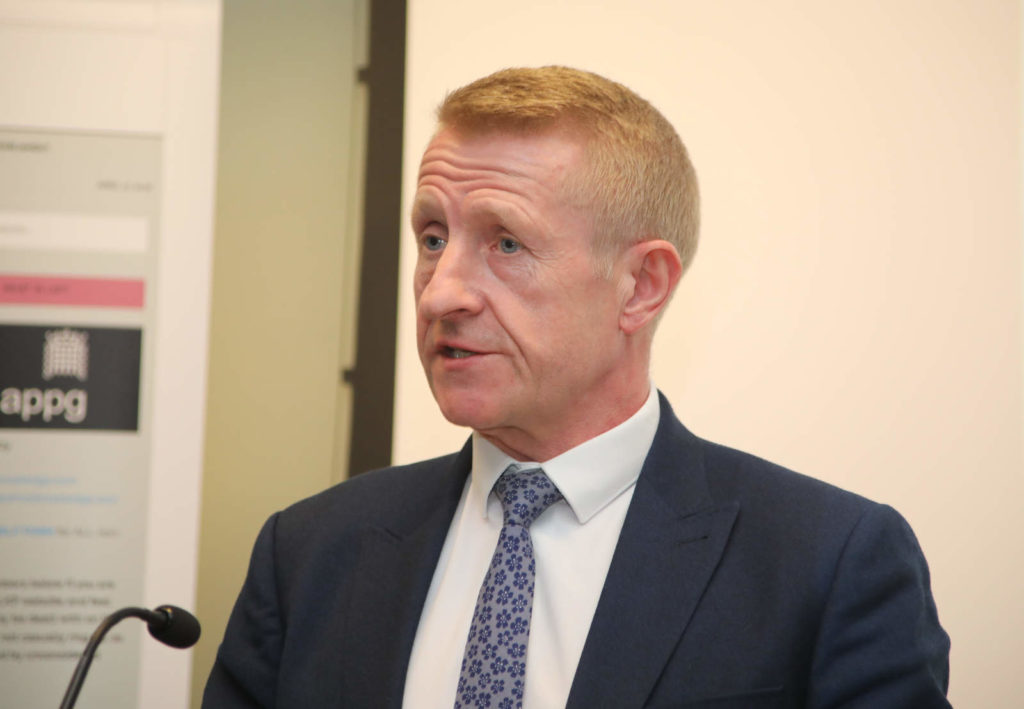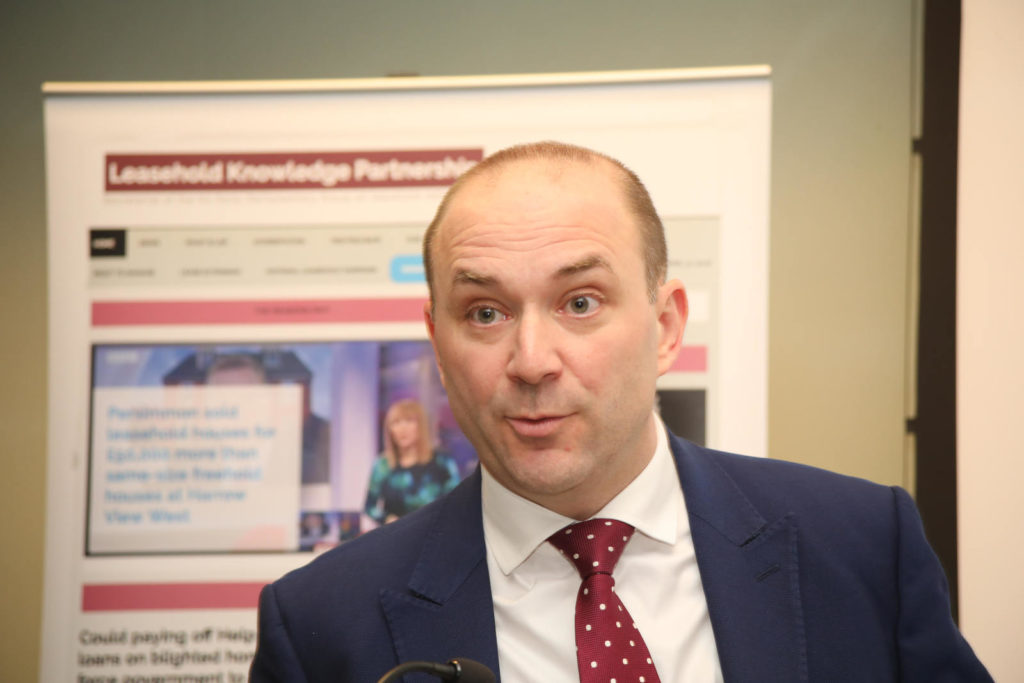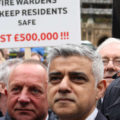
The absolute urgency of flat owners caught up in the cladding scandal to unite and organise was repeatedly underlined at a packed meeting in London City hall last night.
The event was jointly organised by the Leasehold Knowledge Partnership and UKCAG (UK Cladding Action Group) and the leaseholders who attended came from as far as Leeds and Manchester to attend.
In total there were 144 leaseholders representing 83 cladding site.
“Unless we fight this ourselves, no one else is going to do so,” said Ritu Saha, founder of UKCAG and leaseholder at Northpoint, in Bromley SE London, where 57 flat owners face a cladding bill running into millions

While Martin Boyd, LKP chair who also chaired the meeting, said: “At every step officials have declined to encourage leaseholders to meet and share information on the cladding scandal.
“It has been left to leaseholders themselves. Had a meeting of this sort taken place two years ago, government would have paid attention and we would not be in the mess that were are in now.”
The meeting was attended by Hilary Benn, Labour MP for Leeds Central, and Matthew Pennycook, Labour MP for Greenwich and Woolwich. There were also representatives from the London mayor’s office, parliamentary aides and media.
Mr Benn has a Westminster Hall parliamentary debate on the cladding scandal next Wednesday, 2.30- 4pm.
It is vital that leaseholders urge their MPs to attend.
Mr Benn accepted that resolution of the cladding crisis is made far worse by the leasehold system and the involvement of the irrelevant third-party speculators in the building’s income streams.
Whereas in Scotland flat owners – who really DO own their flats – have a direct responsibility for their building because they own it, in England with leasehold their position is far weaker.
How do long term tenants – leaseholders – sue regulators or developers or warranty providers over build defects in a building that they do not own?
Worse still, the government is using leasehold’s service charge mechanisms to provide money to remediate private blocks. This was a point not lost on the politicians present.

This means handing the money to freeholders, who have been lobbying hard to claim that they are “responsible long-term custodians” of blocks of flats, even when anonymous and based offshore.
To get funding, leaseholders have to go through a section 20 procurement process: which means that they have to accept liability for the cladding before the government pays up.
But what happens if the government does not pay up? Or not in full?
And what about the waking watch, the supposedly temporary measure before modern alarm systems are introduced?
The government has said it is not going to pay these costs, but they have run to hundreds of thousands of pounds in many blocks.
A show of hands revealed that the vast majority of leaseholders have had waking watch in their blocks.

Were these being continued for the safety of the leaseholders, or to cover the liability of the freeholders (who would not being paying for any of it).?
Why has the government response to the cladding followed entirely the interests of freeholders in the sector?
If flats are worth zero, as at Ritu’s site Northpoint, then so is the freehold.
Here Vincent Tchenguiz is the freeholder through his vehicle Citistead Limited, but the ground rents are a modest £7,000 a year.
This is paid to Rothesay Life, the Goldman Sach’s founded pension fund advisor, which has a debenture on the Tchenguiz freeholds.

The site is also self-managed through a residents’ management company (RMC).
So the Tchenguiz involvement in Northpoint is absolutely minimal. Perhaps a sublet fee or two at £130 each.
Under these circumstances, how could ministers have wasted nearly two years repeating that “freeholders should do the decent thing and pay up”? The estimated bill at Northpoint is more than £4 million.
LKP said this line was nonsense, and the freeholders could not and even should not pay for cladding remediation. Utterly pointless they may be, but they are as blameless as the leaseholders over cladding.

The solution is simple: this freehold is valueless and needs to be handed over to the leaseholders for nothing so that they can secure their homes and sort the cladding.
The City Hall meeting was also addressed in a hard-hitting and controversial speech by Roy Wilsher, chair of National Fire Chiefs Council and chair of the Protection Board.
This will be reported separately, as will the contributions of Paul Hargreaves, of Walker Morris, which won the legal case against insurers at New Lawrence House in Manchester.
And that of Professor Susan Bright, professor of land law at Oxford University.
The meeting was also addressed by Jack Simpson, of Inside Housing, which established the highly effective #EndOurCladdingScandal campaign. Its reporting on the cladding scandal has been superb.






 Under £50,000 allocated for private cladding removal … and not a penny spent, says London mayor
Under £50,000 allocated for private cladding removal … and not a penny spent, says London mayor






















The case of New Lawrence House, Manchester may prove of use to leaseholder fighting for justice over the cladding issues?
Zurich Insurance has just lose a case in the High Court over serious fire safety defects for which they had denied liability.
It appears that proper inspection before issuing insurance had not been carried out despite the assurance from Zurich it had? So perhaps a probe to ensure that all safety checks had actually been made and not a form filled out might be of help?